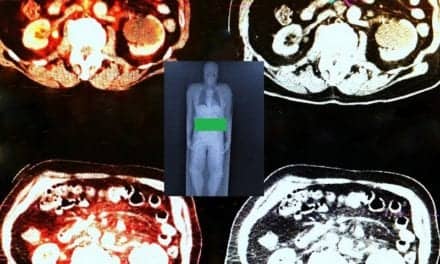The U.S. FDA has granted full approval to Leqembi (lecanemab), which has been shown to slow the progression of Alzheimer’s in patients with mild cognitive impairment or mild dementia; however, the Centers for Medicare & Medicaid Services (CMS) has not committed to reimbursement of the needed PET scans, according to Society of Nuclear Medicine and Molecular Imaging (SNMMI) officials.
Alzheimer’s disease affects more than 6 million Americans and ranks as the sixth leading cause of death among U.S. adults. In 2022, the economic impact of Alzheimer’s disease on the American economy was estimated at $321 billion.
Leqembi (lecanemab), a monoclonal antibody, targets and helps eliminate beta amyloid, a protein that builds up in the brains of individuals with Alzheimer’s disease. Initially approved under the FDA’s Accelerated Approval Pathway in January, Leqembi’s full approval was supported by the results of a large clinical trial in which the drug slowed the rate of cognitive and functional decline by 27% compared to a placebo. The drug necessitates preliminary testing to assess amyloid plaque presence, intravenous infusions administered every other week, and periodic brain scans to monitor potential side effects.
Although the FDA requires pretreatment amyloid testing, it has provided no guidance about the specific test to be used. In clinical studies, amyloid PET scans have been the gold standard for detecting amyloid plaques in the brain. Lumbar punctures are an alternative; however, they are less accurate, can be painful, and are not feasible for a significant number of patients. According to a 2020 study in The Lancet, approximately 35% of patients refuse or are unable to undergo a lumbar puncture.
Although CMS will cover Leqembi and other drugs to treat Alzheimer’s, the agency has not committed to covering the ongoing scans and may not cover the preliminary PET scan needed to confirm the presence of amyloid. CMS currently covers only one amyloid PET scan per patient per lifetime.
“Leqembi can slow cognitive decline for eligible patients,” says Helen Nadel, MD, FRCPC, FSNMMI, SNMMI president. “But we need to ensure that it is accessible to all patients who can benefit from it. Amyloid PET scans are an essential tool that will allow physicians to identify appropriate candidates for Leqembi. PET scans should also be performed on patients after they begin taking lecanemab to ensure that the amount of amyloid plaque has decreased.”
SNMMI will continue to engage with CMS to secure coverage reimbursement of amyloid PET, association officials say. Medicare reimbursement of amyloid PET is currently well below the cost of the radiopharmaceutical used in the scan, raising serious concerns about equitable patient access to non-invasive testing and to the therapies for which testing is required. SNMMI urges Congress to pass the FIND Act, bipartisan legislation that will improve access to innovative radiopharmaceuticals for Medicare beneficiaries.






